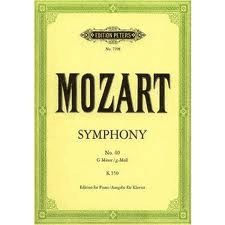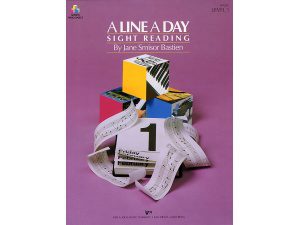Description
Wolfgang Amadeus Mozart wrote his Symphony No. 40 in G minor, KV. 550, in 1788. It is sometimes referred to as the “Great G minor symphony,” to distinguish it from the “Little G minor symphony,” No. 25. The two are the only extant minor key symphonies Mozart wrote.
This work has elicited varying interpretations from critics. Robert Schumann regarded it as possessing “Grecian lightness and grace”. Donald Francis Tovey saw in it the character of opera buffa. Almost certainly, however, the most common perception today is that the symphony is tragic in tone and intensely emotional.
Although interpretations differ, the symphony is unquestionably one of Mozart’s most greatly admired works, and it is frequently performed and recorded.







